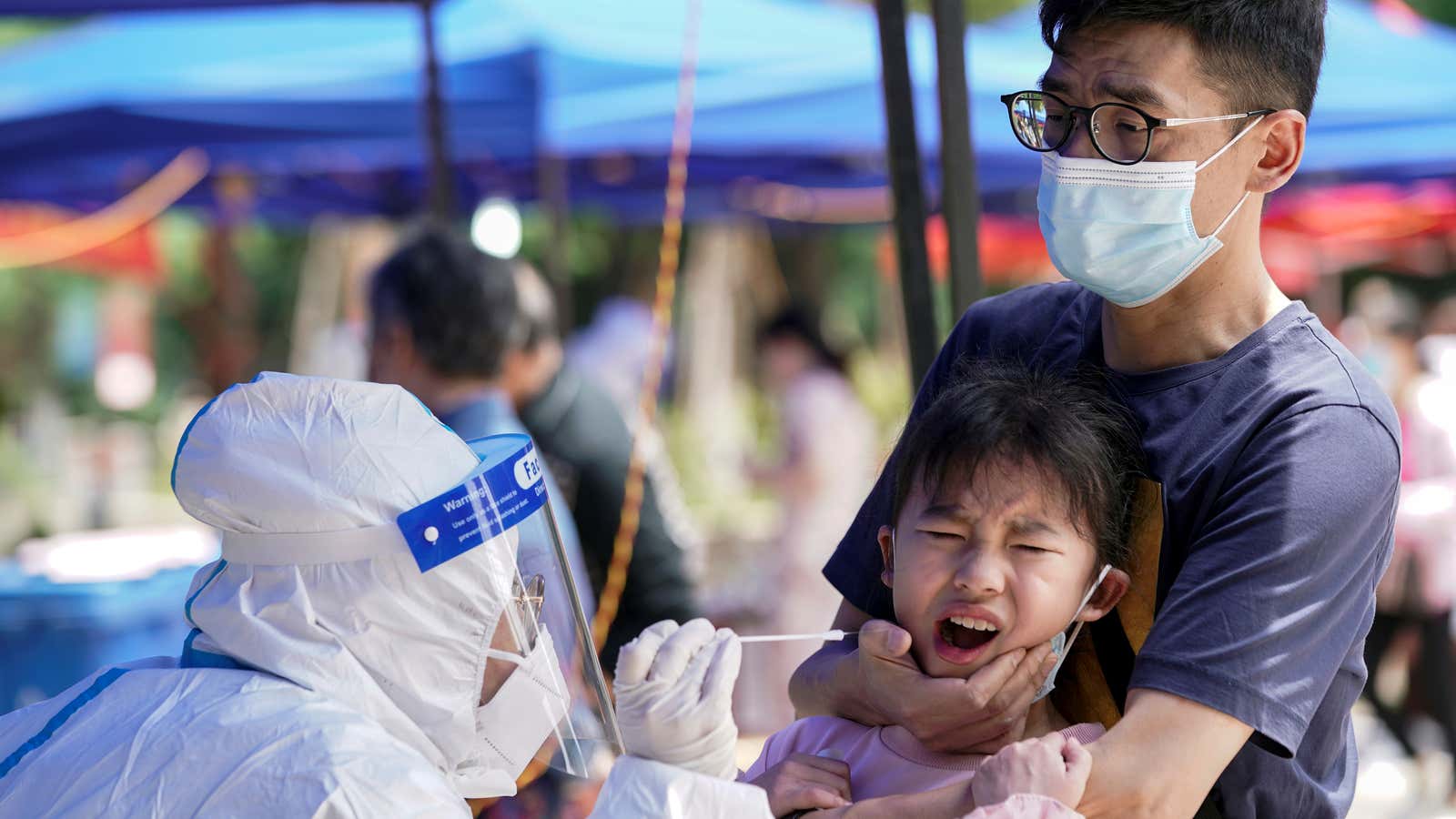The most stringent of covid-19 lockdown restrictions may have ended for Shanghai, but the city’s 25 million residents are still finding it difficult to go about their daily lives. City authorities are now requiring residents to provide a negative covid-19 PCR test taken within 48 hours to access public spaces, a policy that is expected to roll out nationwide.
And after providing tens of millions of free tests to battle flare ups over the past half year, the government has now decided to pass on the costs. A PCR test typically costs between 16 to 20 yuan, or $2.40 to $3. The costs of constant swabbing will add financial stressors to China’s working class.
Grocery stores, restaurants, malls, and office buildings are all off limits without a test. For workers who have to take a test every 48 hours, that adds up to 300 yuan a month, eating into the average Chinese monthly salary of 8,903 yuan, according to government data (link in Chinese). Long wait times to get tested are burdensome for residents, too.
How testing would hurt the Chinese economy
Based on a cost of 20 yuan per test, testing 70% of the China’s population every two days would amount to 8.4% of China’s fiscal expenditure, Nomura economists wrote in a May report. The practice would ultimately cost 1.8% of the country’s GDP, compounding concerns of a weak economy, they added.
That means cutting spending in other areas. Local officials have already complained that even the supply of “free” tests diverted government funds away from poverty-alleviation budgets.
In recent weeks, Chinese Premier Li Keqiang warned about economic risks, reinforcing the idea that the government’s target of 5.5% GDP growth for the year is out of reach. A Bloomberg survey of economist put the figure at 4.5%. Chinese youth, in particular, are facing grim employment prospects. In April, the jobless rate among 16- to 24-year-olds, climbed to a high of 18.2%, three times the overall unemployment rate in China.
However, China has not shown signs of wavering from its zero covid commitment. Last month, Shanghai authorities said they had completed 9,000 permanent testing booths around the city. The testing stations—which will be located at entrances to train and subway stations and at residential and office complexes—will allow people to be tested in just 15 minutes, officials said.
Private pharma firms catch massive windfall
At the other end of the spectrum, the sudden demand for mass testing has minted new billionaire fortunes.
Hong Kong-based Pacific Securities estimates the market for covid test makers and providers is worth more than $15 billion a year. The testing industry includes Li Jixun and Lin Feng, the founding brothers of clinical lab chain Adicon, and other government contractors like Dian Diagnostics and Shanghai Runda. In addition to government contracts, firms are quickly jumping to serve 24-hour testing needs sold direct to consumers, too.
Runda was processing up to 400,000 covid tests per day in April, during Shanghai’s lockdown, generating more than $30 million a month, Reuters reported, adding that China is on track to spend about $52 billion this year on testing, new medical facilities, monitoring equipment and other anti-covid measures.
